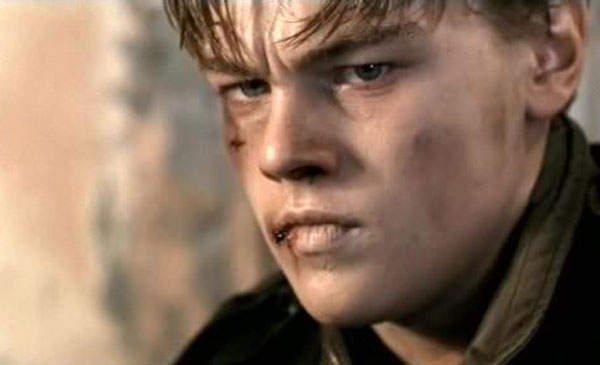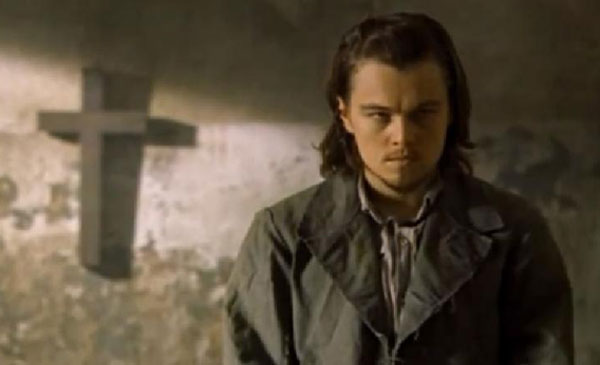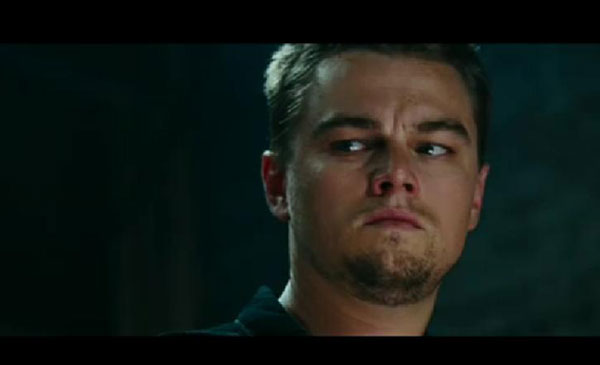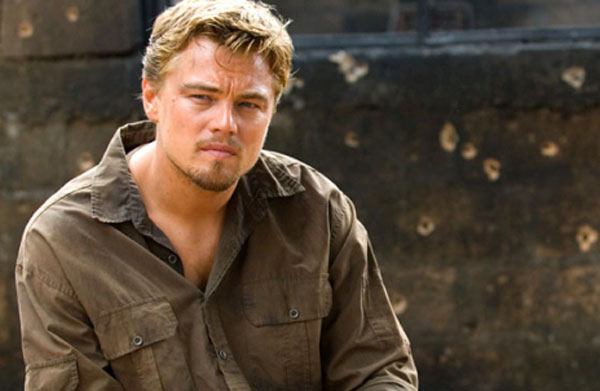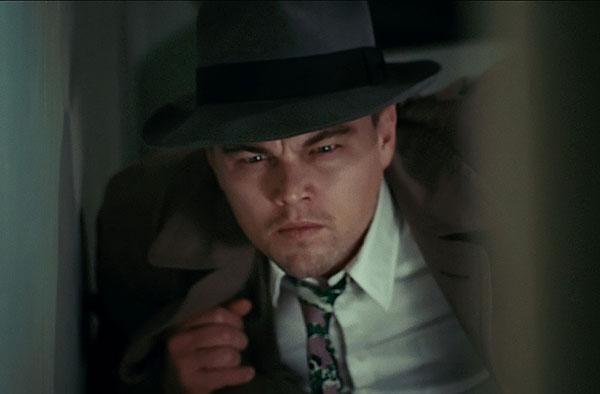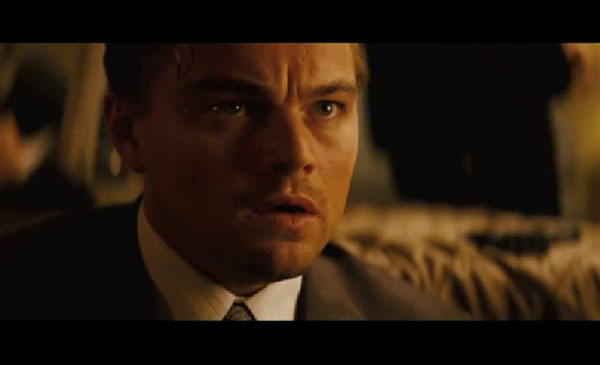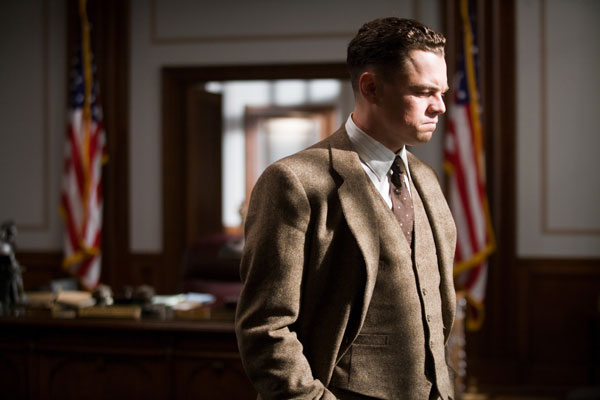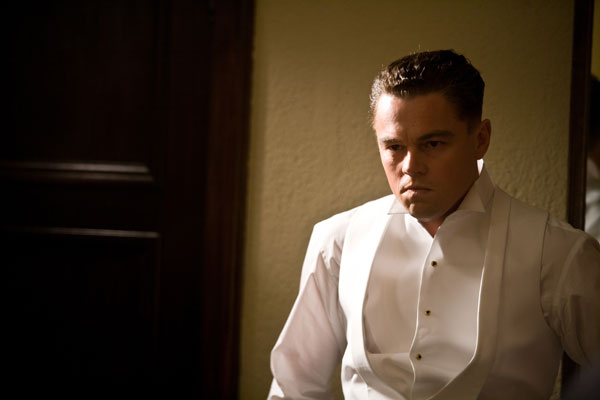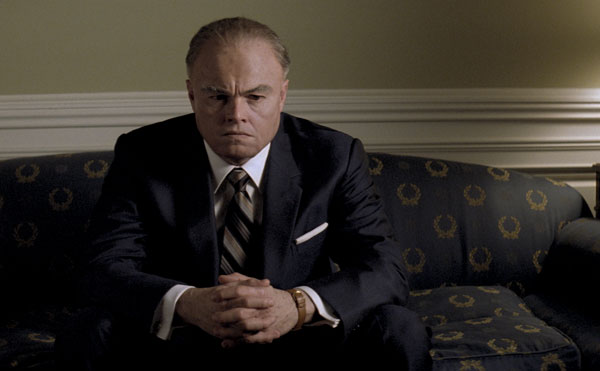J. Edgar
Part History Channel re-enactment, part fascinating exploration of Hoover's sexuality.
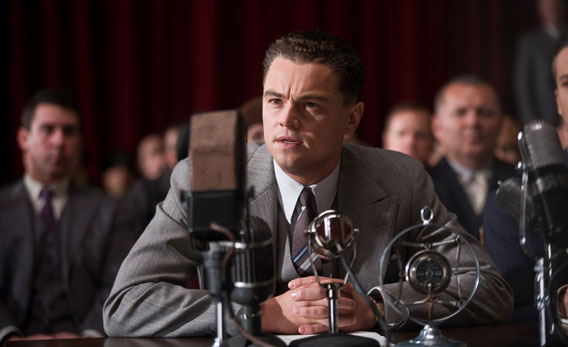
Photograph by Keith Bernstein/©2011 Warner Bros. Entertainment Inc. All Rights Reserved.
To a greater degree than any of Clint Eastwood’s films so far, J. Edgar (Warner Bros.), a sprawling biopic of FBI director J. Edgar Hoover, is a meditation about the passage of time, both in a nation and in a single human body. When the film (scripted by Dustin Lance Black, the Oscar-winning writer of Milk) focuses on the slow decline of its complex half-hero, half-villain, the results are surprisingly perceptive and tender. But when (as for most of its running time) it tries to provide a sweeping overview of seven decades of American history, J. Edgar can feel generic and vague, like a soft-focus newsreel or a strung-together series of History Channel re-enactments.
At once epic and scattershot, J. Edgar spans the period from 1919, when a 24-year-old Hoover (Leonardo DiCaprio) was made the head of the new intelligence division at what was then called the Bureau of Investigation, until 1972, when Hoover dies. Eastwood layers three or four different time frames in a series of nested flashbacks. The effect is less confusing than you might think—each stage of Hoover’s life is shot with a distinct look and feel, making them easy to tell apart. But this multiple-timeline structure sometimes seems arbitrary: Are we cutting back and forth between various old and young Hoovers because they mutually illuminate one another’s stories, or just so every incarnation will get equal screen time?
The life of a public official who served every president from Wilson through Nixon covers a lot of American history, from the left-wing anarchist bombings of 1919 (which Hoover made his name by squelching) through the kidnapping of the Lindbergh baby, the Red Scare, and the assassination of John F. Kennedy. J. Edgar lingers longer on some of these events than others—the investigation of the Lindbergh case constitutes a significant plot thread, while the JFK assassination gets taken care of in a single phone call. Despite a regrettably heavy use of voice-over from DiCaprio to patch together these periods, the historical-survey aspect of J. Edgar isn’t an unrelieved plod—moments of insight and wit are interwoven with the civics-class slideshow. In a wonderfully mordant dirty joke, Hoover receives the phone call about the JFK assassination while listening, in visible discomfort, to a surveillance tape of a woman having an orgasm.
By far the best thing in J. Edgar is the film’s portrait of the relationship between Hoover and his longtime companion Clyde Tolson (Armie Hammer). Just what sort of companion Tolson was to Hoover has never been entirely clear, not only to Hoover’s contemporaries and biographers but, in this film’s vision, to Hoover and Tolson themselves. The two men never married, worked side by side at the FBI for decades, and were famous for never missing a meal together.
Black’s script imagines Clyde and Edgar’s love as a kind of open secret between the two men: They privately confess their devotion to one another, occasionally even hold hands discreetly in the back of a cab, but Clyde’s first (and perhaps only) attempt at a kiss gets him a punch in the jaw. Whatever set of tacit agreements this couple lives by, it’s a devil’s bargain, and the scenes in which the men try to negotiate the boundaries of their relationship are painfully and beautifully drawn. Armie Hammer—last seen in a kind of stunt performance as the Winklevoss twins in The Social Network—is divine as the dashing, slyly ambitious, but also deeply loyal Clyde. Unfortunately, in the old-age scenes Hammer is burdened with unconvincing-looking age makeup that makes him seem to be acting from inside a latex mask (which, I guess, he is, with some CGI assistance).
For some reason, DiCaprio’s age makeup works much better than Hammer’s. Witnessing the advancing decrepitude of Hoover’s body is not only convincing but, at times, harrowing. (As the hero’s jowls and paunch accumulate and his skin grows puffy and sallow, J. Edgar dips a toe into the body-horror genre.) In the film’s drier stretches (there are a lot of details about the Lindbergh trial), I found myself wondering about this discrepancy in age-makeup effectiveness between the two actors. Is it simply because DiCaprio, still baby-faced at 36, is that much closer to the grave than his 24-year-old co-star? Or are certain kinds of faces harder to artificially age than others?
Though I’ve never been a huge DiCaprio fan—he strikes me as one of those actors who works too hard, whose effort and dedication are too visible on the screen—I think he deserves credit for the perceived continuity between the young and old versions of Hoover. His exploration of his character’s physicality is detailed and complete, down to the walk, the gestures, the manner of tying a tie or holding a handkerchief. For me, DiCaprio’s performance never achieved true liftoff—I found myself imagining what an actor like Jeremy Renner might have done with the role—but his level of craft is impressive, and his portrait of Hoover both complex and affecting.
This biopic evinces a curious neutrality toward its subject, a God’s-eye-view that’s at once disapproving and gentle. There are long stretches of scenes in which the socially maladapted Hoover seems like a fragile and sympathetic figure (especially when he’s being alternately browbeaten and babied by his domineering mother, played by the glorious Judi Dench). The love story with Tolson also emphasizes Hoover’s vulnerability, as does his lifelong working relationship with his fanatically dedicated secretary Helen Gandy (Naomi Watts, note-perfect as always).
But when we see the political Hoover in action—conducting illegal surveillance, lying to biographers, even attempting to sabotage Martin Luther King’s acceptance of the Nobel Peace Prize—his nefarious motives seem somehow abstract. What does Clint Eastwood, a Republican who was once a politician himself, actually think about the man who ruled over the FBI, and meddled in civilian affairs, for most of the last century? Or is Eastwood trying to say that Hoover was intrinsically unknowable, a black hole of contradictions and competing impulses? Whether unintentionally or by design, the movie never really makes a case either for or against the troubled figure at its center. “He was a complex guy,” muses Eastwood in the press notes, as taciturn as the Man With No Name.
-

